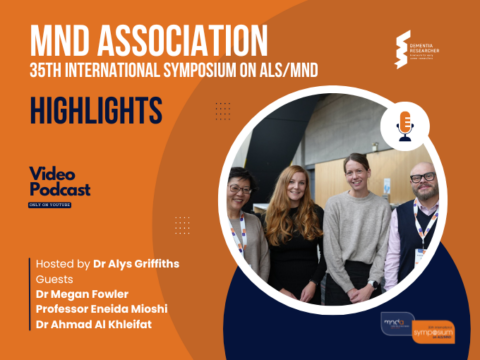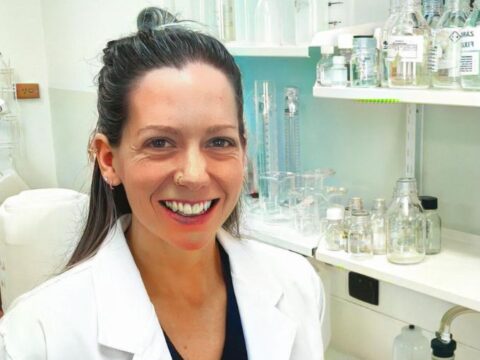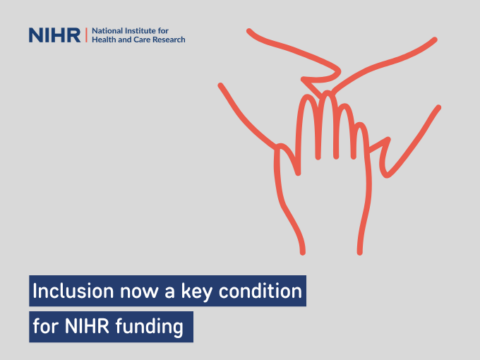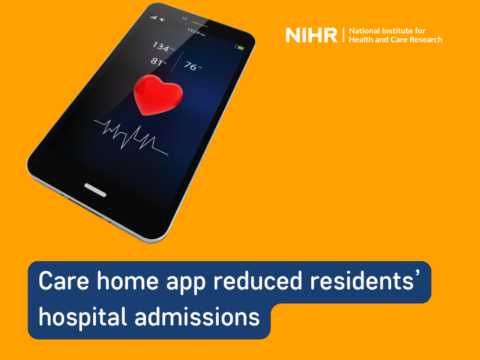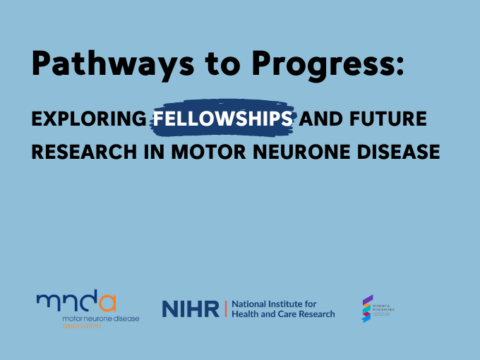
A new partnership has been set up in a bid to speed up the discovery of new treatments and insights into motor neurone disease.
NIHR is partnering with the Motor Neurone Disease (MND) Association to increase research into MND. The five-year partnership will initially provide career development opportunities for doctoral and post-doctoral researchers.
They can partner with the MND Association as part of the NIHR Doctoral Fellowship and Advanced Fellowship schemes. Applications open on 17 and 19 October 2023.
The NIHR launched its Charity Partnership Fellowships in 2018. Since then it has partnered with 19 research charities. The fellowships support individuals to become future leaders in health and social care.
This new partnership with the MND Association will build research capacity in MND. It will help researchers receive valuable input from public and patient MND groups. It will also help them to receive greater research exposure.
Health and Social Care Secretary Steve Barclay said: “This partnership will help in the search for new potential treatments for motor neurone disease and builds on the £50 million funding we’ve pledged for MND research to help find a cure. I am determined to help people living with this devastating disease and boosting cutting-edge research is a crucial part in getting potentially lifesaving treatment to patients faster.”
Professor Waljit Dhillo, Dean of the NIHR Academy: “This new partnership demonstrates our commitment to helping health and care researchers tackle the complex challenges of motor neurone disease. The NIHR Doctoral and Advanced Fellowships will help train and support the next generation of researchers.
“Research is the best opportunity we have to find new ways to treat motor neurone disease and improve the lives of everyone impacted by the disease.”
The Department of Health and Social Care and the Department for Business, Energy and Industrial Strategy have committed £50 million to MND research over the next five years. This reinforces progress being made by the UK’s world-leading scientists.
Partnership to accelerate research findings to benefit people living with MND
MND is a neurodegenerative disease, characterised by loss of motor neurone function. Currently, about 5,000 people are living with MND in the UK and the lifetime risk of developing MND is 1 in 300. The average life expectancy of someone with MND is 18 months from diagnosis . There is currently no cure.
David Mangan, aged 65 from Bedfordshire, was diagnosed with MND the day after he retired and has taken part in two MND research studies. He added: “I’m hoping that my involvement in research will help me with my MND now. But if not, the information gained could help other people living with MND. That’s a huge driver behind why I’ve done one trial and two further studies.”
Dr Sophie Nyberg, Programmes and Partnerships Manager at the MND Association said: “These fellowships will enrich the MND Association’s research portfolio and are the first health and social care research fellowships we provide. We want to fund research proposals that improve the care of people living with and affected by MND. We want to attract, retain and develop health and social care professionals, aiming to steer or sustain their careers in MND research.”
Apply for the partnership fellowship
NIHR Doctoral Fellowships support individuals to undertake a PhD in applied health or social care research. The Advanced Fellowship is for those at a post-doctoral level. It can be utilised at several specific points of a researcher’s career development.
Case study: NIHR researcher looking to improve how people with MND are supported
Sean White is currently exploring how people with MND can be supported to have a feeding tube fitted. This is part of his NIHR funded Clinical Doctoral Research Fellowship (CDRF). He is also co-applicant on the NIHR funded programme grant, HighCALS. This involves the development and evaluation of a complex nutritional intervention for people with MND.
Sean explains: “I believe that healthcare professionals working in the care of people with MND are perfectly placed to develop research questions and design research projects to answer them, that are relevant and will have a great impact on the lives of people with MND.
“Through the contact I have with people with MND, both in my clinical and academic roles, I am very aware of how desperate people with MND and their caregivers are for research to develop effective treatments or a cure. But there also remains a need to focus on how we can better support people living with MND now.
“The research process can fill the gaps in our understanding of how to improve the outcomes of people with MND. The NIHR CDRF provides me with time, training and supervision to develop my academic skills and deliver research in this important clinical area.”
Sean currently has one year left of this fellowship and is considering his next step. He is supportive of the new partnership between NIHR and MND Association.
He adds: “This is a match made in heaven. The NIHR has a long history of supporting healthcare professionals from all clinical backgrounds to develop an academic career, while the MND Association has a long history of funding research to find treatments and hopefully eventually a cure for this horrible disease and also of focusing on overcoming the present day to day challenges. Bringing the strategic aims of these two organisations together has to lead to benefits for people with MND.”
Find out more about Sean’s research on the NIHR funding and awards website.

 Print This Post
Print This Post
